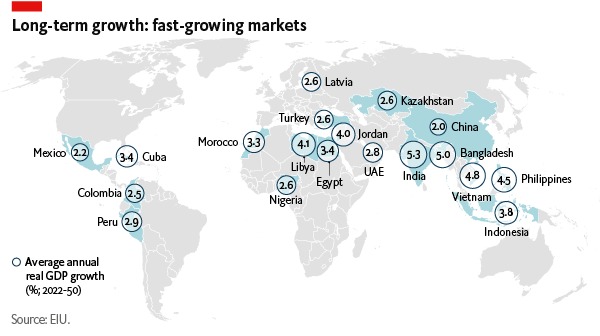Trump's New Order: Creating A National Registry Of Sanctuary Jurisdictions

Table of Contents
Sanctuary jurisdictions, broadly defined, are state or local governments that limit their cooperation with federal immigration authorities. This often involves refusing to detain individuals solely based on immigration detainers or actively shielding undocumented immigrants from federal enforcement. This stance directly challenges federal immigration laws, creating a complex power struggle between different levels of government. A national registry aims to identify and potentially penalize these jurisdictions, triggering a multitude of potential consequences.
Legal Challenges and Constitutional Concerns
The creation of a national registry of sanctuary jurisdictions faces significant legal hurdles. Chief among these are concerns about due process and equal protection under the law. The registry's potential to unfairly target specific communities and states raises serious constitutional questions. Opponents argue that such a registry infringes upon the Tenth Amendment, which reserves certain powers to the states. The federal government's authority to compel state and local governments to participate in immigration enforcement is far from settled.
- Case law precedents: Cases like Printz v. United States (1997) and New York v. United States (1992) provide relevant precedents regarding federal overreach into areas traditionally governed by state and local authorities. These cases raise serious questions about the constitutionality of mandating state participation in a national registry.
- Potential legal arguments: Legal challenges could focus on the lack of clear statutory authority for creating the registry, procedural irregularities in its implementation, and the potential for discriminatory enforcement.
- Expert opinions: Constitutional law scholars and legal experts have expressed serious doubts about the legality and constitutionality of a national registry, highlighting potential violations of individual rights and the principle of federalism.
Political Ramifications and Public Opinion
The proposed registry is highly divisive, exacerbating existing partisan divides. Republicans largely support stricter immigration enforcement and may view the registry as a necessary tool to counter sanctuary policies. Conversely, Democrats and many civil rights advocates strongly oppose the registry, arguing it is discriminatory and undermines local autonomy.
- Public opinion: Polls reveal a significant divide in public opinion on sanctuary cities and the proposed registry, with opinions often aligning with existing political affiliations. However, nuanced opinions exist within each party, illustrating the complexity of the issue.
- Media coverage: The media plays a crucial role in shaping public perception, with different news outlets often framing the issue through their own political lenses. This can lead to a fragmented and polarized public discourse.
- Political strategies: Both sides of the debate are employing different political strategies, including lawsuits, public awareness campaigns, and lobbying efforts to influence the outcome. The registry has become a major point of contention in various political races.
Practical Implications and Enforcement
Creating and maintaining a national registry presents considerable logistical challenges. Accurate data collection, verification, and ongoing updates will be resource-intensive and potentially prone to errors. Moreover, serious concerns exist regarding data privacy and security, potentially violating the rights of both individuals and jurisdictions.
- Funding and resources: The operational costs associated with creating, maintaining, and updating such a registry would be substantial, potentially diverting resources from other important governmental functions.
- Data accuracy and errors: Defining and identifying "sanctuary jurisdictions" is complex, leading to potential inconsistencies and errors in data collection, with the potential for misidentification.
- Enforcement mechanisms: The mechanisms for enforcing compliance with the registry remain unclear, potentially leading to legal disputes and strained relationships between federal and local law enforcement agencies.
Social and Economic Impacts
The creation of a national registry could have profound social and economic consequences. Immigrant communities may experience increased fear and mistrust of law enforcement, potentially hindering their integration into society. Sanctuary jurisdictions could face significant economic repercussions, including potential loss of federal funding and a decline in tourism.
- Impact on immigrant communities: The registry could lead to a climate of fear and suspicion, discouraging immigrants from seeking necessary services and cooperating with law enforcement.
- Economic consequences: The loss of federal funding and potential decrease in tourism could severely impact the economies of sanctuary jurisdictions.
- Societal impact: Increased polarization and division within communities could have long-term consequences for social cohesion and national unity.
Conclusion: Understanding the Implications of Trump's New Order on Sanctuary Jurisdictions
The proposal of a national registry of sanctuary jurisdictions raises complex legal, political, social, and economic questions. The potential for constitutional violations, political polarization, and negative societal consequences are substantial. Understanding these implications is crucial for informed civic engagement. Stay informed about the ongoing debate surrounding Trump's proposed national registry of sanctuary jurisdictions and participate in the democratic process to shape the future of immigration policy. Engage in thoughtful discussions and advocate for policies that align with your values regarding immigration and sanctuary cities.

Featured Posts
-
 Anthony Edwards Nba Imposes 50 K Fine For Offensive Remarks To Fan
Apr 29, 2025
Anthony Edwards Nba Imposes 50 K Fine For Offensive Remarks To Fan
Apr 29, 2025 -
 Data Center Infrastructure Development In Malaysias Negeri Sembilan State
Apr 29, 2025
Data Center Infrastructure Development In Malaysias Negeri Sembilan State
Apr 29, 2025 -
 The January 29th Dc Air Disaster A Case Study In Media Reporting
Apr 29, 2025
The January 29th Dc Air Disaster A Case Study In Media Reporting
Apr 29, 2025 -
 Severe Weather Cleanup Louisville Accepting Debris Removal Requests
Apr 29, 2025
Severe Weather Cleanup Louisville Accepting Debris Removal Requests
Apr 29, 2025 -
 A Geographic Analysis Of The Countrys Top Emerging Business Markets
Apr 29, 2025
A Geographic Analysis Of The Countrys Top Emerging Business Markets
Apr 29, 2025
Latest Posts
-
 Returning To Favorites How You Tube Captures Older Viewers
Apr 29, 2025
Returning To Favorites How You Tube Captures Older Viewers
Apr 29, 2025 -
 You Tubes Growing Appeal To Older Viewers Nostalgia And New Discoveries
Apr 29, 2025
You Tubes Growing Appeal To Older Viewers Nostalgia And New Discoveries
Apr 29, 2025 -
 You Tube A New Home For Older Viewers Favorite Tv Shows
Apr 29, 2025
You Tube A New Home For Older Viewers Favorite Tv Shows
Apr 29, 2025 -
 How You Tube Is Attracting An Older Viewership
Apr 29, 2025
How You Tube Is Attracting An Older Viewership
Apr 29, 2025 -
 Trumps Potential Pardon Of Rose Analysis And Reactions
Apr 29, 2025
Trumps Potential Pardon Of Rose Analysis And Reactions
Apr 29, 2025
